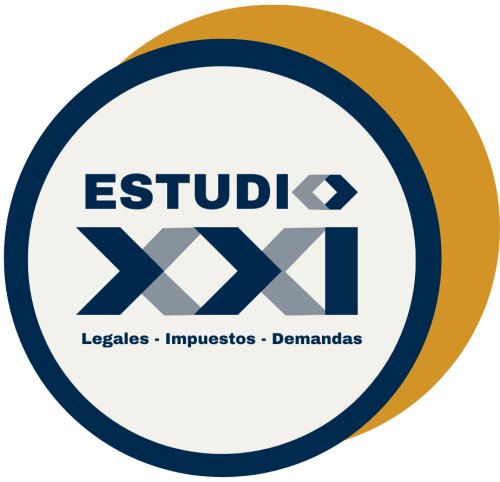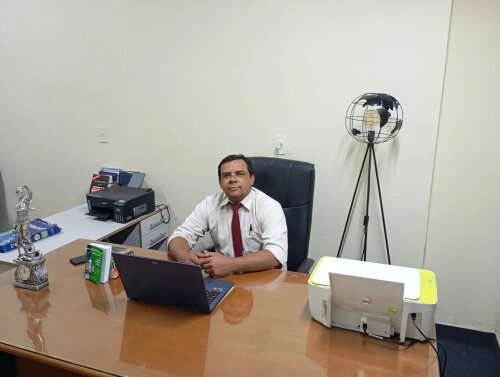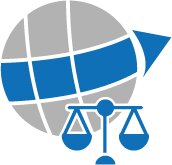Best Restructuring & Insolvency Lawyers in Paraguay
Share your needs with us, get contacted by law firms.
Free. Takes 2 min.
Or refine your search by selecting a city:
List of the best lawyers in Paraguay
About Restructuring & Insolvency Law in Paraguay
Restructuring and Insolvency law in Paraguay is the legal framework that governs the processes by which individuals or companies facing financial distress can reorganize their obligations or enter into bankruptcy proceedings. Designed to provide both debtors and creditors with an orderly system to resolve financial difficulties, Paraguayan insolvency laws aim to either help struggling businesses recover or ensure an equitable distribution of assets if liquidation is necessary. The primary focus is on preserving viable businesses, protecting creditor rights, and maintaining confidence in commercial transactions.
Why You May Need a Lawyer
There are many situations in which individuals or business owners in Paraguay may require legal assistance relating to restructuring and insolvency. Some of the most common scenarios include:
- Businesses experiencing severe financial difficulty and seeking to restructure their debts or operations to avoid bankruptcy
- Lenders or creditors who need to enforce their rights or recover debts from insolvent companies or individuals
- Entrepreneurs looking for advice on risk mitigation or debt negotiation strategies
- Debtors who need protection from creditors while attempting to reorganize their finances
- Partners, shareholders, or directors who may face personal liability due to their company’s insolvency
- Stakeholders involved in the acquisition or sale of distressed assets
A lawyer specializing in restructuring and insolvency can provide guidance through complex legal procedures, help assess options and risks, and represent clients in negotiations or court proceedings.
Local Laws Overview
Paraguayan restructuring and insolvency matters are primarily governed by the Concurso y Quiebra system, regulated under the Civil Procedure Code and specific insolvency statutes. Key aspects of local law include:
- Voluntary and involuntary proceedings: Debtors can file for insolvency if unable to meet financial obligations, or creditors can initiate proceedings against a debtor.
- Concurso Preventivo (Preventive Agreement): Offers an opportunity for debtors to negotiate with creditors to restructure debts and continue operations while under court protection.
- Liquidation (Quiebra): When restructuring is not viable, the company or individual enters liquidation, and assets are sold to pay creditors according to a statutory order of priorities.
- Automatic stay: Once proceedings begin, most creditor actions are paused to allow a fair and collected process.
- Creditors’ Committees and Trustee: The court may appoint a trustee to supervise the process, and creditors form committees to represent collective interests.
- Director and shareholder liability: In certain cases, directors or owners may incur personal liability if there is proven misconduct or fraud during the insolvency process.
- Cross-border insolvency: Paraguay’s framework for international cases is limited but developing, so local legal advice is vital for complex situations.
Local laws are evolving to offer more protection and recovery tools for businesses and creditors, but navigating these laws often requires professional legal guidance.
Frequently Asked Questions
What is the difference between restructuring and insolvency?
Restructuring refers to reorganizing a company's financial and operational structure to resolve distress and avoid insolvency. Insolvency is the legal state where a person or entity cannot pay debts as they become due and may involve court proceedings.
Can individuals file for insolvency in Paraguay?
Yes, both companies and individuals can initiate insolvency proceedings if they cannot meet their financial obligations.
What are my options if my business is in financial distress?
You can seek a preventive agreement to restructure debts or, if that is not feasible, enter into liquidation. Consulting a lawyer early can help you evaluate available alternatives.
Will creditors stop collecting debts if I file for insolvency?
Yes, an automatic stay usually applies once proceedings start, temporarily halting creditor collections and enforcement actions while the process is underway.
How are creditors paid during insolvency processes?
Payments are made according to a legal order of priority, typically beginning with secured creditors, then employees, tax authorities, unsecured creditors, and finally shareholders or owners.
What is the Concurso Preventivo?
The Concurso Preventivo, or Preventive Agreement, is a court-supervised process that allows debtors to reach an agreement with creditors to restructure debts and avoid liquidation.
Are directors or owners personally liable for company debts?
Generally, directors and owners are not personally liable unless there is evidence of misconduct, fraud, or if they continued operations while knowingly insolvent.
What happens to employees during insolvency?
Employment contracts may be terminated or continued depending on the situation. Employees have priority in the distribution of assets and are protected by labor laws.
Can foreign creditors participate in Paraguayan insolvency proceedings?
Foreign creditors can participate, but the process can be complex. It is advisable to seek local legal assistance to ensure rights are protected.
How long does an insolvency proceeding take in Paraguay?
The duration varies depending on the case’s complexity, the number of creditors, asset valuations, and negotiations. It can range from several months to a few years.
Additional Resources
If you need more information or assistance, consider contacting these resources:
- Judicial Power of Paraguay (Poder Judicial): Handles court-supervised insolvency and restructuring proceedings.
- Superintendency of Banks (Superintendencia de Bancos): Oversees financial institutions and banking sector reorganizations.
- Ministry of Finance (Ministerio de Hacienda): Provides information on regulations and economic policy affecting debt and insolvency issues.
- Business Chambers or Professional Associations: May provide referrals to qualified legal professionals specializing in insolvency.
Next Steps
If you or your business are facing financial difficulties or you are a creditor worried about recovering debts, consider the following steps:
- Gather all relevant financial documents, contracts, and communications regarding debts or obligations.
- Seek an initial consultation with a lawyer specializing in restructuring and insolvency. An early assessment can clarify your position and legal options.
- Discuss preventive measures, restructuring strategies, or the feasibility of entering a Concurso Preventivo before opting for liquidation.
- If you are a creditor, document all claims and consider options for collective action or representation in insolvency proceedings.
- Stay informed about the status of proceedings and maintain regular contact with your legal adviser to ensure compliance with procedural deadlines and maximize recovery or protection.
Acting promptly and seeking professional advice are key to protecting your interests and reaching the best possible outcome in any restructuring or insolvency matter in Paraguay.
Lawzana helps you find the best lawyers and law firms in Paraguay through a curated and pre-screened list of qualified legal professionals. Our platform offers rankings and detailed profiles of attorneys and law firms, allowing you to compare based on practice areas, including Restructuring & Insolvency, experience, and client feedback.
Each profile includes a description of the firm's areas of practice, client reviews, team members and partners, year of establishment, spoken languages, office locations, contact information, social media presence, and any published articles or resources. Most firms on our platform speak English and are experienced in both local and international legal matters.
Get a quote from top-rated law firms in Paraguay — quickly, securely, and without unnecessary hassle.
Disclaimer:
The information provided on this page is for general informational purposes only and does not constitute legal advice. While we strive to ensure the accuracy and relevance of the content, legal information may change over time, and interpretations of the law can vary. You should always consult with a qualified legal professional for advice specific to your situation.
We disclaim all liability for actions taken or not taken based on the content of this page. If you believe any information is incorrect or outdated, please contact us, and we will review and update it where appropriate.
Browse restructuring & insolvency law firms by city in Paraguay
Refine your search by selecting a city.















